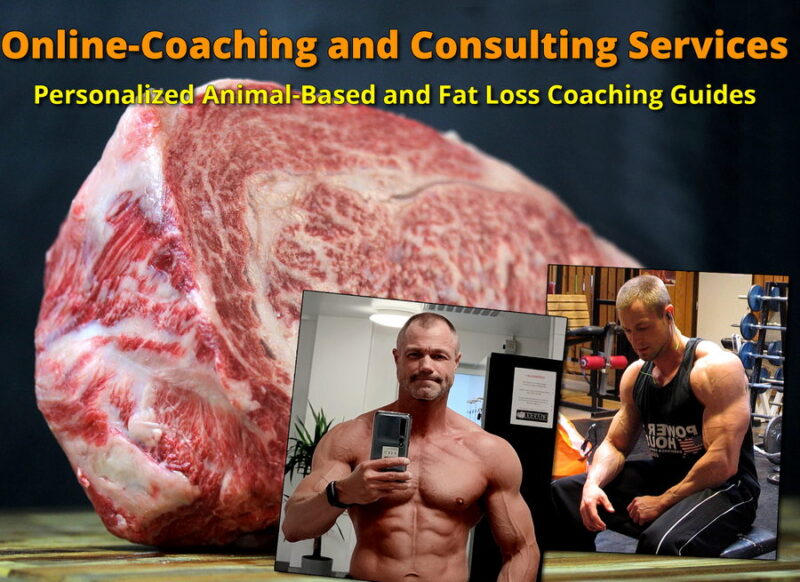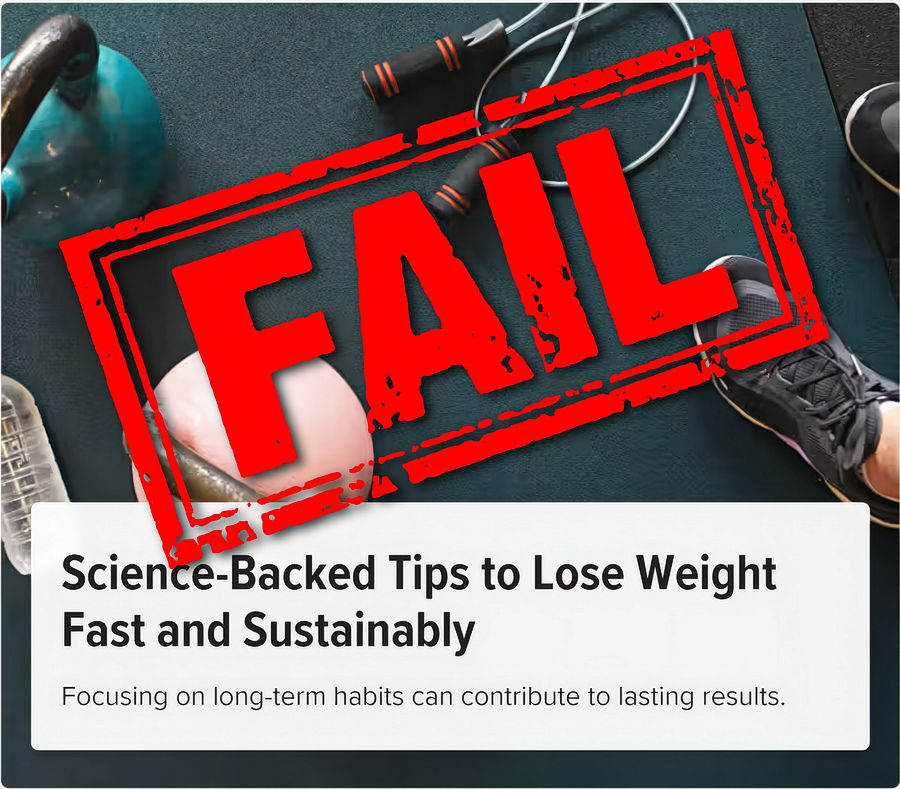The shills at Healthline are back with what they call six “Science-Backed Tips to Lose Weight Fast and Sustainably.”
At least they start off with telling their readers to ‘cut carbs,’ although it should say ‘cut out carbs,’ as in removing all extremely toxic carbohydrates. Well, let’s see what more they have.
“How to lose weight in 6 simple steps…”
1. Eat protein, fat, and vegetables
“Aim to include a variety of foods at each meal. To balance your plate, your meals should include protein, fat, vegetables, and complex carbohydrates.”
Oh, snap, they failed before they even got started. ‘Balance’ is such a politically correct word, although it has no place in nutrition; as humans are obligate hyper carnivores. We should not eat things that we are not physiologically constructed for. Anything that is not from an animal is toxic for us, and that includes vegetables and “complex” carbohydrates. I covered this many, many, times.
Protein
“Eating a recommended amount of protein is essential to help preserve muscle mass while losing weight. Diets with adequate protein may also reduce cravings and snacks by helping you feel full and satisfied.”
Yes, protein is important. It does take a little bit longer to digest and it saturates the bloodstream with amino acids for several hours. But hunger and cravings are both symptoms of nutrition deficiencies, of malnutrition, that your diet is lacking real bioavailable nutrients, as in animal-based foods, and that your body is desperately trying to signal you to eat more to remedy these deficiencies. Protein will only block this response a little bit longer than the other macronutrients, but that does not fix the real problem. It’s only a band aid.
“Vegetables”
Just no. All plant-based garbage is toxic to humans and the little nutrition that might be in them is bound to anti-nutrients and the fiber, not to mention that many of the nutrients are in the wrong chemical form, they are not bioavailable to humans. Also, there are no vegetables that you can find today that are represented in nature. They are all man-made Frankenstein’s monster experiments.
“Healthy fats”
“Healthy fats like olive oil, avocado, nuts, and seeds are great choices for your eating plan.”
NO! These are not healthy! These are extremely toxic! The only fat a human should be consuming is animal fat, as in saturated fats. The only fats you’ll find in our bodies, and in abundance, are saturated fats and cholesterol, these are the only fats needed for life. Also, “fats” from seeds are not fats, they are oils. If you do not know the difference, you should not be discussing nutrition.
2. Move your body
“The Physical Activity Guidelines for Americans recommend combining cardio workouts with weight training for optimal health.”
Well, while some physical activity is required to keep your body strong and mobile, and to keep your lymph moving, it’s not required for fat loss. And relying on exercise and doing it excessively is very damaging to the body.
Fat loss should come from nourishing your body and then doing some simple and strategic fasting. As for physical activity or exercise, just do what you like, and only in moderation. Exercise is stress, it breaks you down and ages you faster. You need to balance it to be healthy.
3. Eat more fiber
NO! Let me stop you right there. No need to even quote their retarded backward logic, as fiber is extremely damaging to our digestive system and one of the main reasons for all digestive tract disease and problems. There is zero evidence in any literature that humans need fiber. Actually, there is a lot of evidence that we do a lot better without fiber. A lot of indigenous tribes barely ever consumed anything plant-based, and much less fiber. And everyone switching to an animal-based diet recover from anything digestive related and finally experience perfect stool movements.
My digestion used to be a mess. Now, I have not touched fiber or anything plant-based in over 6 years, and my digestion has been flawless with ‘one-wipe wonders’ every day.
4. Eat mindfully
“Having a good understanding of how your body responds to food and eating can help you make sure you’re not overeating. This is known as mindful eating. It can involve the following:
* eating more slowly
* learning to recognize when you’re hungry vs. when you’re craving food for emotional reasons
* cooking colorful foods with a variety of textures to prolong and enjoy your meals”
Mindfulness? You mean ‘common sense?’
Seriously though, we simply come back to eating what we are physiologically made for. If you eat according to your species, as in animal fat, meat, and organs, you will be fully nourished and thus you will never experience hunger or cravings — and whether you do a “diet,” or you fast for fat loss, it should be a breeze. You should never experience these feelings or get the urge to ‘overeat.’
5. Stay hydrated
“Drinking plenty of water can help promote weight loss by reducing your food intake, especially if you drink water before a meal.”
I wrote about this stupid idea of drinking water to feel full only a few weeks ago. While staying hydrated is good, as in getting enough electrolytes and water from meat, or by drinking some, you should not use it to feel full. Once again, we are back to the problem with today’s idiotic “balanced” diet or a diet with or from plant-foods, making you malnourished, toxic and hungry. Fix that problem, as in actually consuming nutrient dense animal foods, and there’s no need to do anything to feel full or blunt hunger.
Also, drinking a lot of water will flush out electrolytes and minerals, making you dehydrated! The more you drink, the more electrolytes you need to actually use and store some of that water – or it will simply go right through you, flushing out said electrolytes.
6. Get plenty of sleep
“In addition to changing your diet and exercise routine, getting enough sleep each night may be beneficial for weight loss.
One study found that people who regularly sleep less than 7 hours per night are more likely to have a higher body mass index and develop obesity than those who sleep more.
Plus, sleep deprivation might also alter levels of hormones that control hunger and appetite.”
This was the only one out of six bullet points that you got somewhat right. Congratulations.
Still, sleep is not about the duration, it’s about the quality. For example, you can sleep for 7 hours and only get 1 hour of REM sleep and 30 minutes of deep sleep and thus feel like shit. Or you can sleep 5 hours and get 2 hours of REM sleep and 1.5 hours of deep sleep and feel fantastic and energized. Always try to maximize quality over duration. And yes, I do have some articles about this, and I have several pages about sleep in my coaching guides. It’s that important!
What about calories and portion control?
“It’s not always necessary to count calories as long as you follow a balanced diet rich in protein, fat, and vegetables.”
So, you do now recommend a ketogenic diet, uh? Anyways, ditch the toxic veggies, make sure the fats are of animal origin, and you’ll be good.
Also, calories are heat units, totally irrelevant to our physiology and metabolism.
“If you’re not losing weight, you may want to keep track of your calories to see if that’s a contributing factor.”
Calories does not matter, as they are heat units. We do not use ‘heat units’ to fuel our metabolic processes. Simply use common sense and eat a bit less, or even better, eat to feel good and perform your best, then fast for two days a week, and you will lose more body fat than on any other kind of diet, all while getting all the nutrients you need on the days you eat. That will also guarantee that you will not develop nutrient deficiencies from eating to little for weeks upon weeks. I covered this in multiple articles as well.
And that was about it for this article and what dieticians recommend for fat loss in 2024. It seems like they are still very far behind reality. Still, they did recommend to cut down on carbs, or even going ketogenic, but the addition of using vegetables and seed oils will do extreme damage to your health.
If you need help or want some guidance with health issues, fat loss, and/or transitioning from your current way of eating to our natural species-appropriate, species-specific way of eating, I’m available for both coaching and consultation.

